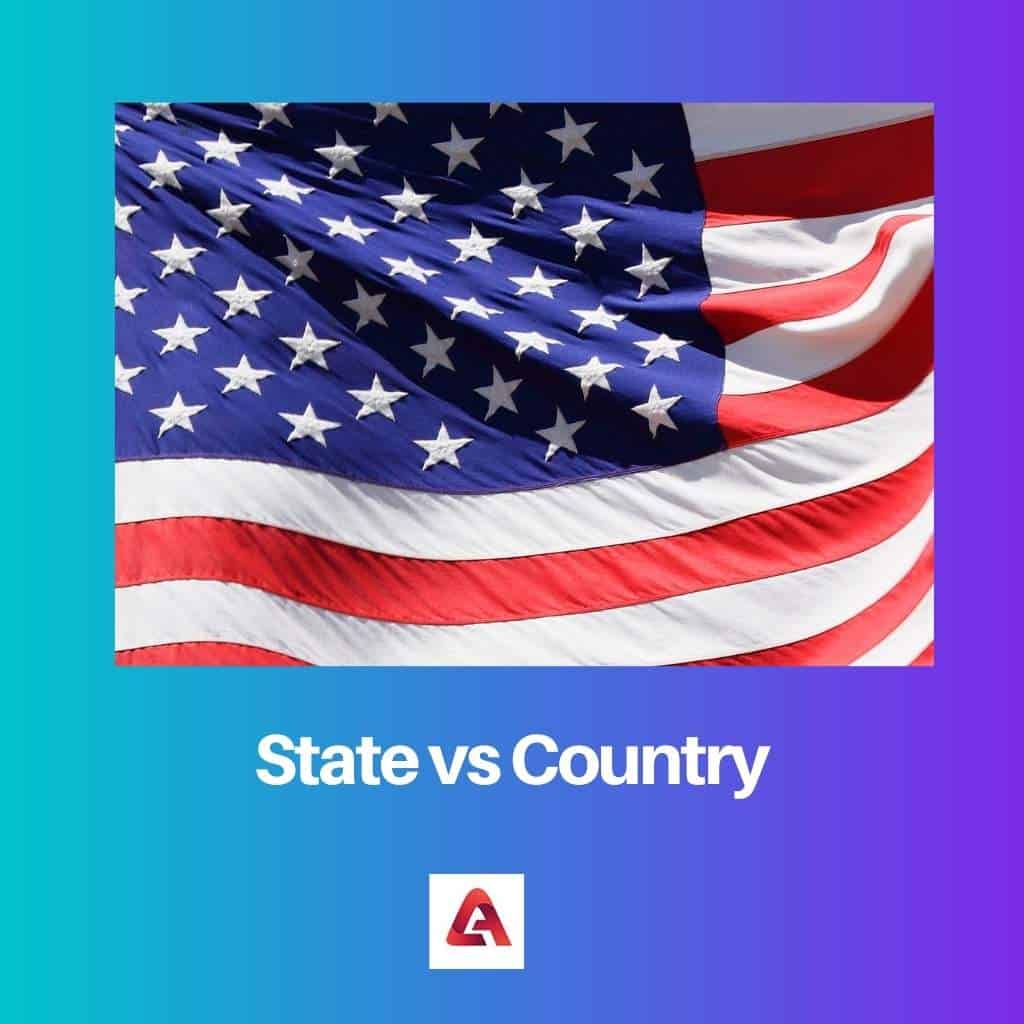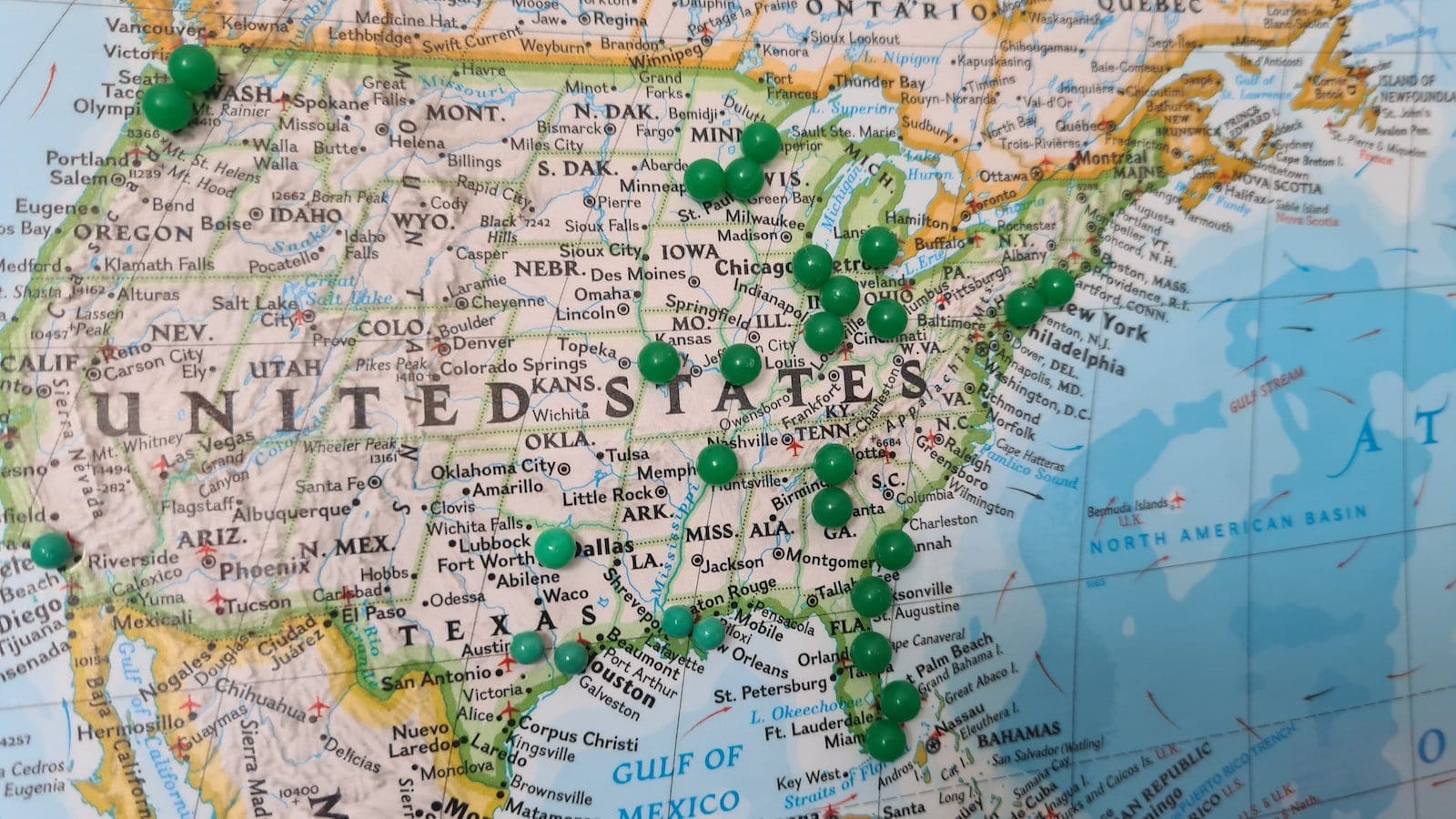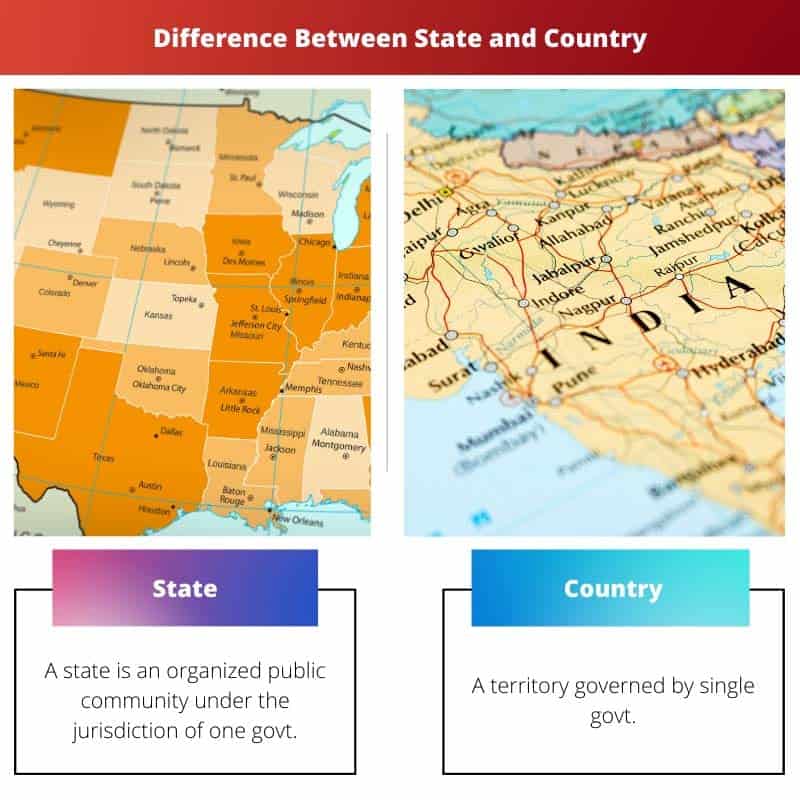Terms such as State and Country could be confusing to many who have no detailed idea of how and in which context they are being used.
In different contexts, these terms can be interchangeable. There are situations where state and country can mean the same, and there are other situations where they can mean different things.
Key Takeaways
- A state is a smaller political entity within a country, whereas a country is a larger political entity comprising multiple states or provinces.
- States possess limited sovereignty under the central government, while countries enjoy full sovereignty in the global community.
- State governments administer their territory, while a country has a central government to oversee all states and make international decisions.
State vs Country
The difference between a state and a country is that a country is a territory with defined borders, while a state is a division of that territory or simply a small region within a country. (In a geographical context.) Often, from a political perspective, we see both a country and a state as the same entity, a territory with internationally accepted borders.

When ‘s’ of “State” is written in uppercase, it means that it refers to a region or territory that is the same as a country, and when ‘s’ of “state” is written in lowercase, it means that it refers to a region or territory that is smaller than and within a country.
As said earlier, a country is a region that has defined and approved borders internationally and by neighbouring countries. It also has sovereignty over the territory, i.e. it has authority over the region, and no other country can take over. Countries are also called sovereign states.
Comparison Table
| Parameters of Comparison | State | Country |
|---|---|---|
| Meaning | A state is a region or division under a territory or A state is an organized public community under the jurisdiction of one govt. | A territory governed by single govt. |
| Description | Whereas state is a small region under a country that is also run by the country’s govt and also state is used to refer to a whole country as well. | Has its own economy. A country is basically a region that has a boundary that separates it from other countries. |
| Governments | May have independent or dependent govt. Possibly the state govt is under the central govt. | Have the govt and judicial body regulate people and implement rules and laws. Have an independent govt, a sovereign authority. |
| Areas & Residents | The area of the state is smaller than that of a country or a sovereign state. Residents are obviously less in smaller territory. | Have permanent residents. The total area is more than that of a state. |
| Example | Uttar Pradesh, Goa, Haryana and many more. | USA, UK, China, India etc. |
What is a State?
A state is basically a region that comes under the sovereignty of a country or a State. As stated earlier that the word ‘state’ could have two meanings based on which context it is used. The state could sometimes be used interchangeably to refer to a country.
But the confusion is here, which one of the two meanings of the state is the most appropriate and used more often? Well, it is up to the user how they mean to use and what is he/she referring to, whether an independent state or a dependent state.
We can understand clearly whenever we come across such a paragraph or discussion going on, and it’s simple.
There are a number of states that sum up to be a whole country or an independent sovereign state. A state has its own government that may be independent or dependent on the central but has no high power over the central government.

What is a Country?
In basic terms, a country is a territory with a government and judicial system that regulates the people and enforces laws. There is an economy within the country to meet the country’s needs.
It is responsible for fostering friendly relations between neighbouring and partner countries. Additionally, it is responsible for issuing the nation’s currency as well as conducting business throughout the world.
In political terms, it is also called a sovereign state. The territory of a country or state is divided into smaller units called states. There are four basic components of a country: citizens, territory, government, and sovereignty. Sometimes a country is also called an independent state.
Features of a country:
- Has internationally recognized land and borders, notwithstanding border disputes
- Has permanent residents;
- It is sovereign, which means that another country cannot encroach on its territory
- Has a transportation system to move goods and people
- Recognized by other sovereign states
- Also has the education to educate the population.
There are 195 independent countries in the world. Kosovo is the latest formed country after its independence from Serbia in the year 2008.
Also, there are some countries which claim to be independent a country but other countries or sovereign state does not approve that, territories like Hong Kong, Bermuda, Puerto Rico, and Greenland.
Many disputes arise when countries refuse to recognize territories that claim to be countries.
As an example, Taiwan claims to be an independent country, but China asserts that Taiwan is a part of China. Due to this, other countries that do not want to upset China also deny Taiwan’s independence.

Main Differences Between a State and a Country
The fundamental differences that differentiate the meaning of the two terms are listed below
- A state’s total area is under the boundary of a country or a sovereign state.
- Both have their own governments, but a central government has superiority over a state government.
- A country is responsible for issuing currency and money for its people and business, while a state does not have the right to issue currency. It has to use the allowed currency by the central government.
- Has recognized government that is responsible for public services and police power and has the power to decide treaties, wage war, and take other actions for the people.
- A country has sovereignty that no other country can impose any rule or occupy over the claimed region, but a state comes under the sovereignty of a country, i.e. a country can rule over a state when needed. It has authority.





